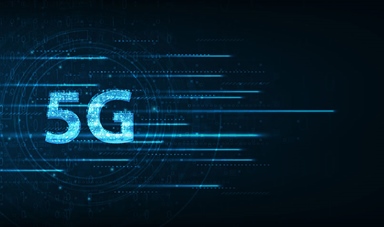Loading component...
At a glance
It’s no exaggeration to say that the widespread adoption of 5G next-generation mobile technology will change life and business as we know it.
Promising lightning fast data speeds allowing the download of huge amounts of data in a second, more reliable connections, no “lag” in video transmissions, and a new world of “inter-connectedness” where every (artificially intelligent) device can talk to each other, 5G has been dubbed ‘Everything on Mobile’.
According to Business Victoria, 5G is potentially up to 100 times faster than 4G networks. Another plus is increased network efficiency may also mean the battery life of your devices is extended by 10 times, it says.
As well as transforming IT systems, 5G will continue to change the way we work, with seamless connectivity increasing flexible working opportunities and empowering new ways of working digitally, says Tyler Wise CPA, director of Wise Accounting.
“Because 5G will also reduce hardware requirements, you will be able to move office without having to consider IT costs,” he says.
However, against these advantages, 5G will pose new security challenges for businesses. Therefore, businesses will need to spend money on cybersecurity, not just new, 5G-enabled technology, says Aaron Bugal, global solutions engineer at cybersecurity company Sophos.
Boosting output and opportunity
Businesses that use artificial intelligence, or make augmented and virtual reality more accessible, will have a clear competitive advantage, says Wise.
Increasingly they will be able to access sophisticated business solutions including advanced storage, accountancy and business software and tools in the cloud, allowing them to expand markets, lower operating costs and improve productivity.
In the future, expect AI processing to go from the cloud to being distributed among mobile and Internet of Things devices allowing for the next level of personalisation of goods and services.
More immediately, global business will benefit from a more intelligent signal that is able to capture more data in transmission, says Tony Chan, partner, Risk Advisory and National Leader, IT & Specialised Assurance at Deloitte Touche Tohmatsu Certified Public Accountants in Beijing.
Video conferencing, conference calls and flexible working are obvious areas where 5G will make interactions easier and more professional, he says, while online financial advice will become more attractive.
“Upskilling is essential,” says Chan. “Finance professionals will need to know how technology can enhance their business and there is a trend of expectation to have an accountant with capability in dealing with online business and even with a strong IT background in auditing."
In China, digitalisation is already high in certain sectors, in particular e-commerce and fintech, he says.
“Banks use robots who can respond to customers through voice recognition to handle many transactions, and even in the countryside, people are already using AI technology to help with agriculture.”
Chinese consumers are very open and comfortable with new technology, says Chan, while the government continues to push the rollout of sound digital infrastructure to fuel high quality economic growth.
The nation’s big three telecom operators began to roll out 5G services in October last year and there are now 86,000 5G base stations, covering 50 cities nationwide, with China set to become the world's largest 5G market by 2025, according to a forecast by the Global System for Mobile Communications Association.
South Korea, the United States, the United Kingdom and Japan have also rolled out 5G networks while, in Australia, Telstra, Vodafone and Optus have switched on 5G in limited city areas.
Risk and reward of 5g technology
According to a Qualcomm report, by 2035, 5G will enable US$12.3 trillion of global economic output and support 22 million jobs worldwide. However, while 5G comes with great opportunity, it also comes with risks.
Bugal says 5G’s ubiquitous bandwidth presents greater opportunity for hackers to gain access to confidential information.
“Sharing financial data between networks your business doesn’t control or operate, poses inherent risks,” he explains.
“Because of a lack of visibility of what is being transmitted, an attacker can quickly infiltrate data from a device connected to the 5G network without raising red flags within an organisation.”
A 5G network will also allow more employees to be connected to business systems more readily, from anywhere, on almost any device. In a hyperconnected world, therefore, the security of a company’s data stored and managed on the cloud, as well as on-premises, needs to be a top priority.
Businesses should know where that data is, who has access to it, and be confident that it is protected from unauthorised access or even worse, theft.
As well as strong cybersecurity tools and processes for every device, system and service being accessed regardless of where or how they are being utilised, a response plan for when – not if – a cyber attack happens is essential.
Bugal says reports from The Office of the Australian Information Commissioner’s mandatory data breach notification scheme highlight that no one is immune from cyber attacks.

